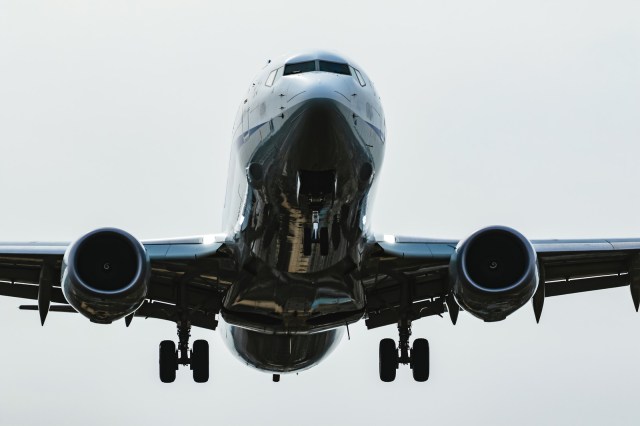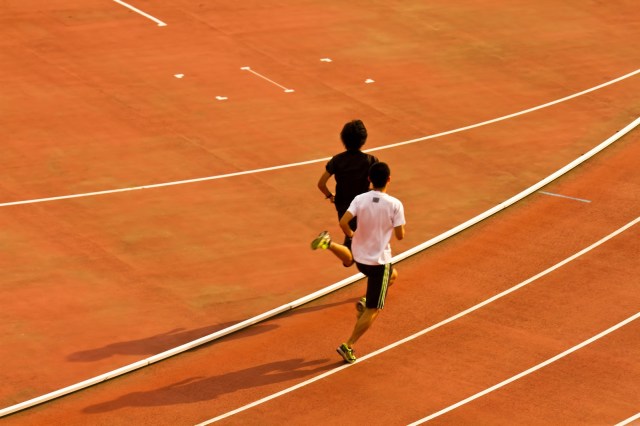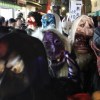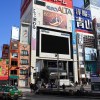
Athletes will be in Japan, but they won’t get to see much of it.
Though there are many that are undoubtedly still questioning whether the Tokyo Olympics should go on, it seems as though they will indeed happen.
Along with ban on overseas spectators, the Tokyo Olympics committee has revealed additional safety measures they will take to prevent the spread of COVID-19 to the best of their ability.
First of all, athletes will be subject to daily COVID-19 tests during their stay in Japan, along with the staff and family that are in close contact with them. Public transportation will be out of the question, so you won’t spot your favorite athlete on a Tokyo train or bus. They will, however, be able to reserve Shinkansen bullet train seats as long as they reserve an entire car to themselves.
▼ As far as air travel goes, they’ll have to charter flights
or board entirely separately from other passengers.
Medical staff at the Games will number almost ten thousand, including dentists, physical therapists, and more. On peak competition days, there will be as many as 300 doctors and 400 nurses on standby at venues, of which 100 each will be dedicated solely to COVID-19 prevention and treatment.
So, what if someone tests positive for COVID-19? They won’t be able to compete in the Olympic Games, and everyone in contact with them at the time will be treated as a close-contact candidate — someone who is at a higher risk for also testing positive for the coronavirus.
The Olympics committee has been cooperating with 30 designated hospitals nationwide to reserve priority beds for treatment in case someone does become infected.
This last bit of news in particular has caused a bit of a stir on social media, with Japanese netizens on Twitter chiming in with their thoughts.
“Metropolitan hospitals are for Tokyo citizens. They aren’t for Olympic athletes.”
“So they’re reserving 30 hospitals total throughout Japan for Olympic athletes. Does that mean the risk is really that high? I guess the Olympics are more important than the lives of Japanese citizens.”
“So we don’t have vaccines, we can’t be hospitalized, and we can’t even get tested, but they can reserve hospital beds for Olympic athletes that quickly? The Kanto region will be hell this summer.”
That last quote is a bit of an exaggeration, but Japan does remain a nation with one of the lowest vaccination rates right now — only 2.44% of residents have received one dose of the vaccine so far, according to Our World in Data.
With less than three months to go until the Games officially begin, Japan can only hope that things begin to speed up in the vaccination area, that Olympic athletes remain safe and COVID-free, and that there aren’t any more political gaffes.
Sources: Sponichi Annex via Yahoo! News Japan, Twitter
Reference: Our World in Data
Top image: Pakutaso
Insert images: Pakutaso (1, 2)
● Want to hear about SoraNews24’s latest articles as soon as they’re published? Follow us on Facebook and Twitter!


 Tokyo Olympics to allow spectators, provided they “cheer quietly”
Tokyo Olympics to allow spectators, provided they “cheer quietly” Tokyo Olympics will not allow spectators from overseas
Tokyo Olympics will not allow spectators from overseas COVID-19 cases plummeting in Japan, doctors puzzled why
COVID-19 cases plummeting in Japan, doctors puzzled why Georgian Paralympic judo athlete arrested for attacking a security guard in a Tokyo hotel
Georgian Paralympic judo athlete arrested for attacking a security guard in a Tokyo hotel Tokyo Olympics bans fans from posting videos of the Games on their social media accounts
Tokyo Olympics bans fans from posting videos of the Games on their social media accounts McDonald’s new Happy Meals offer up cute and practical Sanrio lifestyle goods
McDonald’s new Happy Meals offer up cute and practical Sanrio lifestyle goods Studio Ghibli releases new action figures featuring Nausicaä of the Valley of the Wind characters
Studio Ghibli releases new action figures featuring Nausicaä of the Valley of the Wind characters All-you-can-drink Starbucks and amazing views part of Tokyo’s new 170 meter-high sky lounge
All-you-can-drink Starbucks and amazing views part of Tokyo’s new 170 meter-high sky lounge Studio Ghibli glasses cases let anime characters keep an eye on your spectacles
Studio Ghibli glasses cases let anime characters keep an eye on your spectacles Katsudon vs. tonkatsu vs. katsu sandwich – What’s the best way to eat pork cutlet in Japan?
Katsudon vs. tonkatsu vs. katsu sandwich – What’s the best way to eat pork cutlet in Japan? Arrest proves a common Japanese saying about apologies and police
Arrest proves a common Japanese saying about apologies and police Kyoto’s 100 Demons yokai monster parade returns!
Kyoto’s 100 Demons yokai monster parade returns! Super Nintendo World expansion gets delayed for several months at Universal Studios Japan
Super Nintendo World expansion gets delayed for several months at Universal Studios Japan We try out “Chan Ramen”, an underground type of ramen popular in the ramen community
We try out “Chan Ramen”, an underground type of ramen popular in the ramen community Hamster abandoned at Tokyo ramen restaurant gets new home
Hamster abandoned at Tokyo ramen restaurant gets new home More foreign tourists than ever before in history visited Japan last month
More foreign tourists than ever before in history visited Japan last month Disney princesses get official manga makeovers for Manga Princess Cafe opening in Tokyo
Disney princesses get official manga makeovers for Manga Princess Cafe opening in Tokyo Starbucks reopens at Shibuya Scramble Crossing with new look and design concept
Starbucks reopens at Shibuya Scramble Crossing with new look and design concept Beautiful new Final Fantasy T-shirt collection on the way from Uniqlo【Photos】
Beautiful new Final Fantasy T-shirt collection on the way from Uniqlo【Photos】 Is the new Shinkansen Train Desk ticket worth it?
Is the new Shinkansen Train Desk ticket worth it? Foreign English teachers in Japan pick their favorite Japanese-language phrases【Survey】
Foreign English teachers in Japan pick their favorite Japanese-language phrases【Survey】 Beautiful Sailor Moon manhole cover coasters being given out for free by Tokyo tourist center
Beautiful Sailor Moon manhole cover coasters being given out for free by Tokyo tourist center Studio Ghibli releases Kiki’s Delivery Service chocolate cake pouches in Japan
Studio Ghibli releases Kiki’s Delivery Service chocolate cake pouches in Japan Japan’s bone-breaking and record-breaking roller coaster is permanently shutting down
Japan’s bone-breaking and record-breaking roller coaster is permanently shutting down New definition of “Japanese whiskey” goes into effect to prevent fakes from fooling overseas buyers
New definition of “Japanese whiskey” goes into effect to prevent fakes from fooling overseas buyers Our Japanese reporter visits Costco in the U.S., finds super American and very Japanese things
Our Japanese reporter visits Costco in the U.S., finds super American and very Japanese things Studio Ghibli unveils Mother’s Day gift set that captures the love in My Neighbour Totoro
Studio Ghibli unveils Mother’s Day gift set that captures the love in My Neighbour Totoro Domino’s Japan now sells…pizza ears?
Domino’s Japan now sells…pizza ears? New Japanese KitKat flavour stars Sanrio characters, including Hello Kitty
New Japanese KitKat flavour stars Sanrio characters, including Hello Kitty One of Tokyo’s most famous meeting-spot landmarks is closing for good
One of Tokyo’s most famous meeting-spot landmarks is closing for good Kyoto creates new for-tourist buses to address overtourism with higher prices, faster rides
Kyoto creates new for-tourist buses to address overtourism with higher prices, faster rides Sales of Japan’s most convenient train ticket/shopping payment cards suspended indefinitely
Sales of Japan’s most convenient train ticket/shopping payment cards suspended indefinitely Sold-out Studio Ghibli desktop humidifiers are back so Totoro can help you through the dry season
Sold-out Studio Ghibli desktop humidifiers are back so Totoro can help you through the dry season Japanese government to make first change to romanization spelling rules since the 1950s
Japanese government to make first change to romanization spelling rules since the 1950s Ghibli founders Toshio Suzuki and Hayao Miyazaki contribute to Japanese whisky Totoro label design
Ghibli founders Toshio Suzuki and Hayao Miyazaki contribute to Japanese whisky Totoro label design Doraemon found buried at sea as scene from 1993 anime becomes real life【Photos】
Doraemon found buried at sea as scene from 1993 anime becomes real life【Photos】 Tokyo’s most famous Starbucks is closed
Tokyo’s most famous Starbucks is closed One Piece characters’ nationalities revealed, but fans have mixed opinions
One Piece characters’ nationalities revealed, but fans have mixed opinions We asked a Uniqlo employee what four things we should buy and their suggestions didn’t disappoint
We asked a Uniqlo employee what four things we should buy and their suggestions didn’t disappoint Princesses, fruits, and blacksmiths: Study reveals the 30 most unusual family names in Japan
Princesses, fruits, and blacksmiths: Study reveals the 30 most unusual family names in Japan Japanese Internet reacts in dismay to official Olympics Twitter quietly changing its header
Japanese Internet reacts in dismay to official Olympics Twitter quietly changing its header Tokyo Olympics losing volunteers even after president’s resignation for sexist remarks
Tokyo Olympics losing volunteers even after president’s resignation for sexist remarks “Do not travel to Japan” U.S. government tells citizens
“Do not travel to Japan” U.S. government tells citizens Tokyo Olympics organizers offer to pay volunteers 125 yen 【US$1.13】 an hour, critics unimpressed
Tokyo Olympics organizers offer to pay volunteers 125 yen 【US$1.13】 an hour, critics unimpressed Japanese athlete caught after slipping steroids into rival’s drink to further Olympic ambitions
Japanese athlete caught after slipping steroids into rival’s drink to further Olympic ambitions Why have no COVID-19 clusters occurred in pachinko parlors?
Why have no COVID-19 clusters occurred in pachinko parlors? Tokyo Olympics opening ceremony preliminary ticket prices announced, wallets cry across Japan
Tokyo Olympics opening ceremony preliminary ticket prices announced, wallets cry across Japan Japan to reopen to international tourists with new entry requirements
Japan to reopen to international tourists with new entry requirements Is there an adorably chubby bird hiding inside the Tokyo Olympics logo?
Is there an adorably chubby bird hiding inside the Tokyo Olympics logo? Seiji gets into the Olympic spirit on the cheap at 100-yen store Daiso
Seiji gets into the Olympic spirit on the cheap at 100-yen store Daiso Shinkansen will require reservations for large suitcases, charge penalty fees for those without
Shinkansen will require reservations for large suitcases, charge penalty fees for those without Young people in Tokyo to be offered points and discounts if they get vaccinated
Young people in Tokyo to be offered points and discounts if they get vaccinated 13-year-old Japanese girl becomes first-ever women’s skateboarding Olympic gold medalist【Video】
13-year-old Japanese girl becomes first-ever women’s skateboarding Olympic gold medalist【Video】 Japan ministry urges universities to adjust curriculum to accommodate student Olympic volunteers
Japan ministry urges universities to adjust curriculum to accommodate student Olympic volunteers Search is on for COVID-19 patient who escaped out a sixth-floor window of Osaka hotel
Search is on for COVID-19 patient who escaped out a sixth-floor window of Osaka hotel
Leave a Reply